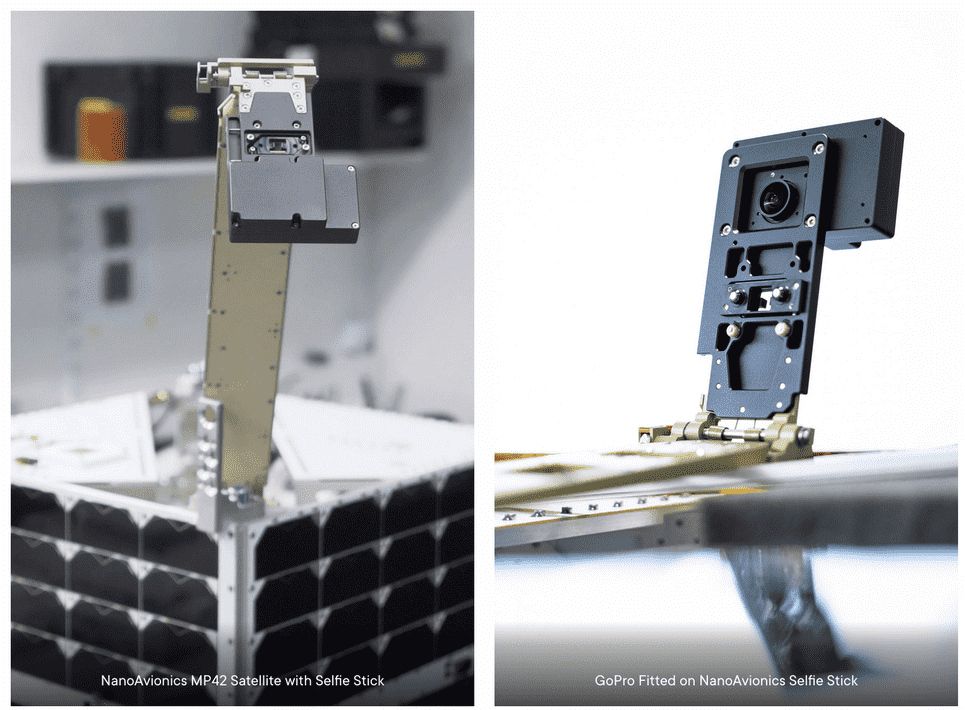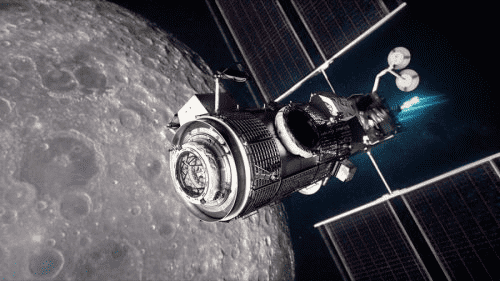Proprietary space-grade cameras are expensive, limited, and very difficult to develop. NanoAvionics has recently overcome any development issues and has opted for something off the shelf. The company used a GoPro Hero 7 mounted to a custom-built selfie stick to take a selfie that’s out of this world.
NanoAvionics’s MP42 microsatellite bus took the 12-megapixel selfie at an altitude of 342 miles (550 km) above Australia’s Coral Sea and Great Barrier Reef, according to a press release. The private firm says

it’s “the first-ever 4K resolution full satellite selfie in space with an immersive view of Earth.” The smallsat, along with two other NanoAvionics-built satellite buses, launched to space in April aboard a SpaceX Falcon 9 rocket.
Typical cameras used for these sorts of applications do not have enough resolution, are too expensive, take too long to develop, and don’t always provide an immersive view. The GoPro Hero 7 was ready to give a better result after a few adjustments. In addition to stripping the camera down to its “bare bones,” engineers “fabricated a custom housing for the electronics, made a custom ‘selfie stick’ and developed camera control electronics and special software to communicate with the satellite systems,” the company explained. The engineers also “tested it rigorously to prove it can survive the harsh environment of a rocket launch as well as the vacuum and huge temperature swings in space.”
“The reason for taking the photo and video clip with the Great Barrier Reef in the background was partly symbolic,” Vytenis Buzas, co-founder, and CEO of NanoAvionics, said in the press release. “We wanted to highlight the vulnerability of our planet and the importance of Earth observation by satellites, especially for monitoring environment and climate changes.”

The company said it’s using the GoPro to test and verify satellite operations and to also test its new PC 2.0 payload controller running Linux. The payload controller optimizes downlinks for “applications that require onboard processing of huge data packages,” according to NanoAvionics
In April, San Francisco-based Planet Labs announced its plans to deploy a global constellation consisting of 32 Earth-observing satellites. Incredibly, these satellites will collectively be capable of tracking a single spot a dozen times each day and at resolutions good enough to find a toaster. Colorado-based Maxar Technologies boasts a satellite constellation with similar capabilities.


